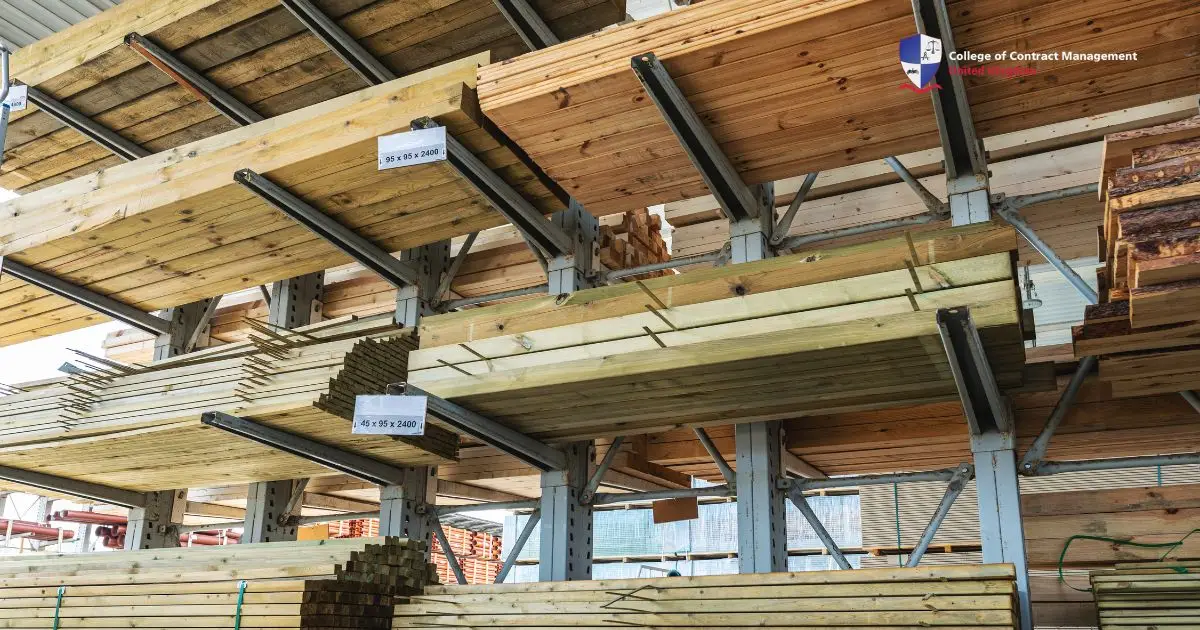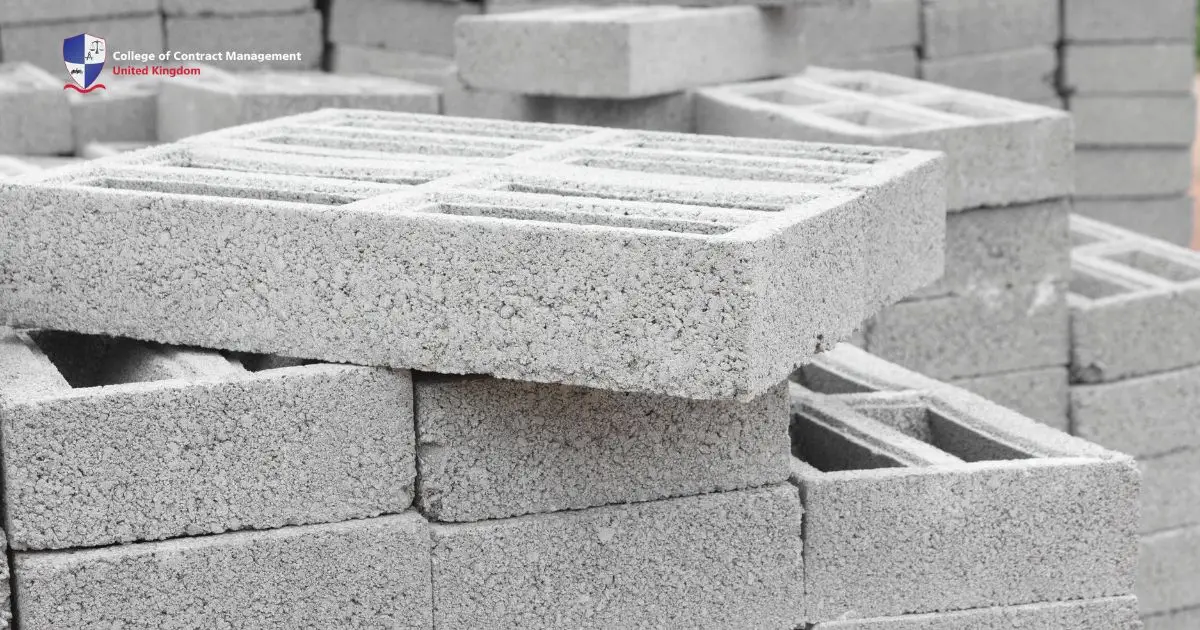The UK construction industry is facing the biggest crisis of the decade. There is a huge shortage of vital materials affecting the construction of future homes. Not only that, building materials like timber, cement, and bricks have become more difficult to find. This has caused project delays, price increases, and construction challenges for everyone.
This shortage is not just a problem but a crisis with a huge impact on one of the most important industries. Construction companies have to build strategies to reduce the timeline of the projects and think of creative ways to prevent projects from stopping. With the increase in material prices, it is clear that businesses and homeowners are facing the effects. This shows us that this crisis is affecting not only the industry but the entire economy.
This article will help you find out some of the factors that are causing the UK’s building materials shortage. It'll also include strategies to face the challenge and impact brought on by this crisis. So, if you just want to know about this problem, this guide will give you all the information you need about the crisis which is changing the entire construction industry in the UK.
What are building materials?
Building materials are the pillars of any construction project, comprising buildings and infrastructure. Be it a residential house or a building without these materials it is impossible to think of building them. Some of these materials are timber, glass, cement, bricks, and finishing products such as paints and tiles. These materials are chosen based on factors such as cost, availability and the specific requirement of the project.
Building materials are made up of two categories which are natural and man-made. Natural materials are taken directly from the earth. They are not processed at all (e.g., stone, wood, bamboo). On the other hand, man-made materials are made through industrial processes (e.g., steel, concrete, glass).
Factors leading to the shortages of building materials in the UK
The crisis of building materials in the UK is one of the most important challenges for the industry. This problem is not only limited to the UK, but it is a larger global crisis. To find a solution, we have to understand the key reasons that are leading to the shortage. This section will help you look at some of the key factors which have led to the shortage of buildings.
- Global Supply Chain Disturbance: COVID-19 pandemic, shipping delays, political tension
- High Demand for Materials: Post-pandemic construction boost, global competition
- Brexit Impact: Trade barriers, labour shortages, currency fluctuations
- Shortage of Raw Materials: Timber, steel, cement
- Rising Energy Costs: High energy prices have increased the production of steel, bricks and cement.
- Labour Shortages: Skills and labour gap due to Brexit, ageing workforce and few people entering the industry
Impacts of the building materials shortage on the UK Construction Industry
The shortage of building materials has shocked the entire UK construction industry. The challenge of securing these materials has affected every aspect of the industry. Be it a small-scale project or a large development project, the impact can be seen everywhere. Let us look at some of the major impacts of this crisis.
- Increase in the project costs: The increase in the prices of basic materials such as timber, steel, and bricks has shot the entire project budget. Builders and contractors are facing a hard time dealing with these costs. As a result, clients have to face this.
- Facing delays: Sourcing times of the materials from weeks to months have made the overall timeline go more than decided. Projects are delayed or stopped because of the difficulty of getting building materials on time.
- Pressure on the small and medium enterprises: Many small builders who are financially not strong have to compete with the big players in the industry. Forcing them to shut down their business due to cash flow problems or operation challenges.
- Impact on the overall housing infrastructure: Slow progress in the housing projects has increased the overall UK housing crisis. Additionally, projects such as roads, and public facilities are delayed which is affecting the overall economy.
- Increased unemployment: Shortage of materials is directly affecting the reduction in the jobs of labour workers. Skilled workers are also facing layoffs and some are shifting their careers due to fewer projects and employment.
The economic impact of the building material shortage in the UK
The current building materials crisis in the UK is causing problems not just for the construction industry but many other industries as well. Also, the rise in the prices for essential materials has caused more delays in building new homes and other construction projects. This has also affected the housing market greatly. With less construction of houses, there has been a massive shortage of homes in the UK. As a result, the house prices and the rent have gone high. Making it difficult for people to even afford a place to live.
On the other hand, small companies are struggling to run their businesses. The lack of resources has made them lose against large companies. Some of them have to stop projects, lay off staff, or close down entirely. This has led to massive job losses in the construction industry. Also, the overall economy of the UK is hampered because the shortage of building materials slows down infrastructure projects. Lastly, the high cost of these materials is surely raising inflation in the country. To solve this crisis, both the businesses and the government will have to act quickly.
Strategies to overcome the building materials crisis in the UK
The current crisis of building materials in the UK has made huge changes in the construction industry. It has led to delays in projects, increased costs and also project cancellations in some cases. To face these challenges businesses need to focus on creating strategies that will help minimise the impact. We will explore some of the key strategies that will help overcome the current construction materials crisis and help revive the future of the construction industry.
- Better supply chain management: Improving the supply chain with local suppliers is very important to minimise delays. Working with local suppliers can help reduce wait times for imports from other countries.
- Use other alternative materials: Instead of depending on hard-to-get materials builders should find alternative materials which are easily accessible. More use of 3D printing technology can also help reduce wastage of materials.
- Support from the government: The government can be a huge help by providing financial support and incentives. Tax reliefs and grants can help support local businesses to increase more production of building materials. Also reducing import prices and customs duties on these materials can be a huge relief during the crisis.
- Building international relationships: Making trade relations stronger with other countries is important for a steady supply of materials. Long-term agreements with countries can help secure resources.
- Use of technology: Digital tools and software can help large companies optimise resources and avoid wastage. This will also improve the project planning and forecast supply issues and prevent future crises.
Conclusion
Building materials shortage in the UK has created a huge impact on the construction industry. Due to this, there have been project delays, higher budgets, and also a shift in the supply chain strategies. Challenges such as high material costs and supply goals have created a huge need for changing strategies. The government needs to solve the challenges through innovative solutions and strategies. But to do this, having professional workers in the industry is important.
To stay competitive in these challenging times, it is important to have the correct training and development programme. The College of Contract Management offers tailored programmes and construction projects to help you achieve just that. Their programmes will help you master subjects such as project management and contract negotiations to overcome the current challenges in the industry. These personalised courses will provide you with the knowledge and skills even if you are an experienced construction professional or a new professional in the industry. It is the right to take the next step and increase your knowledge of building materials. Don’t let the industry challenges hold you. Take charge of your future as early as today.





